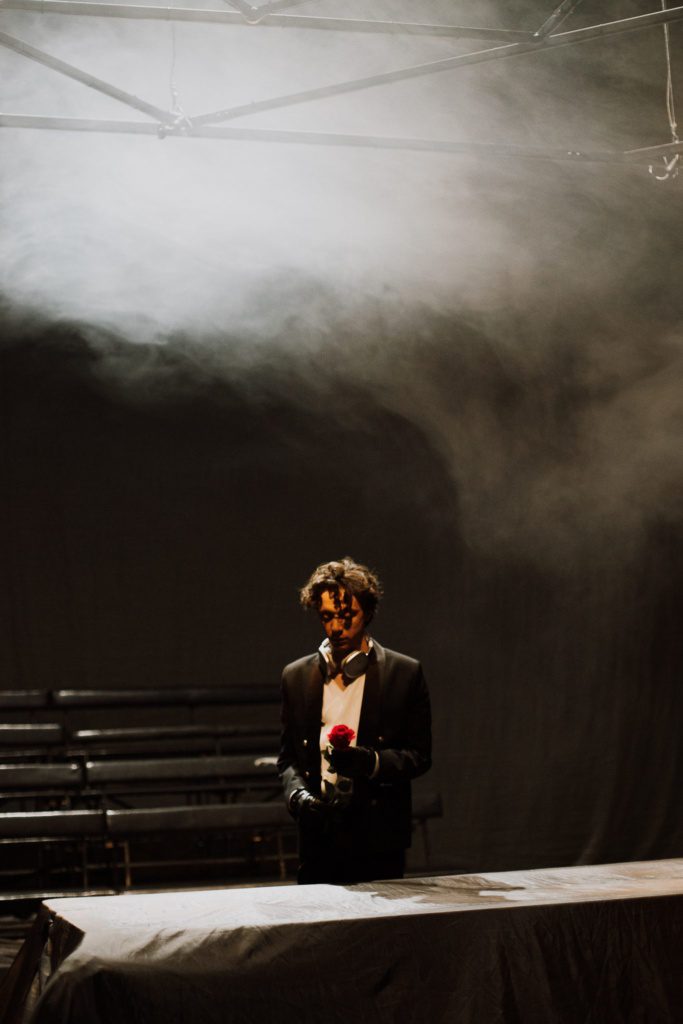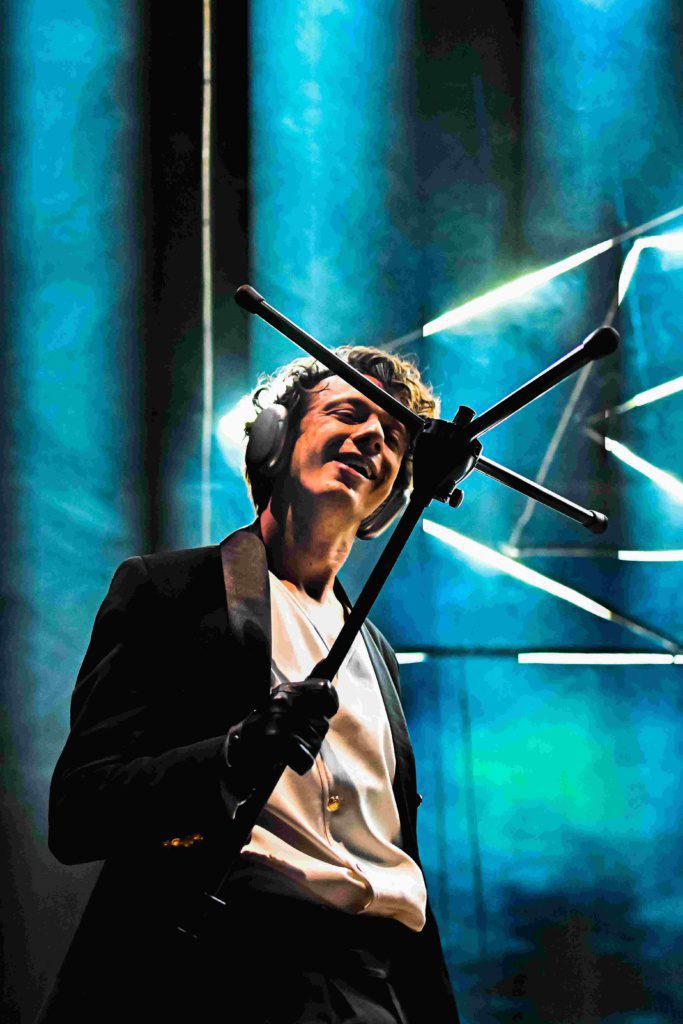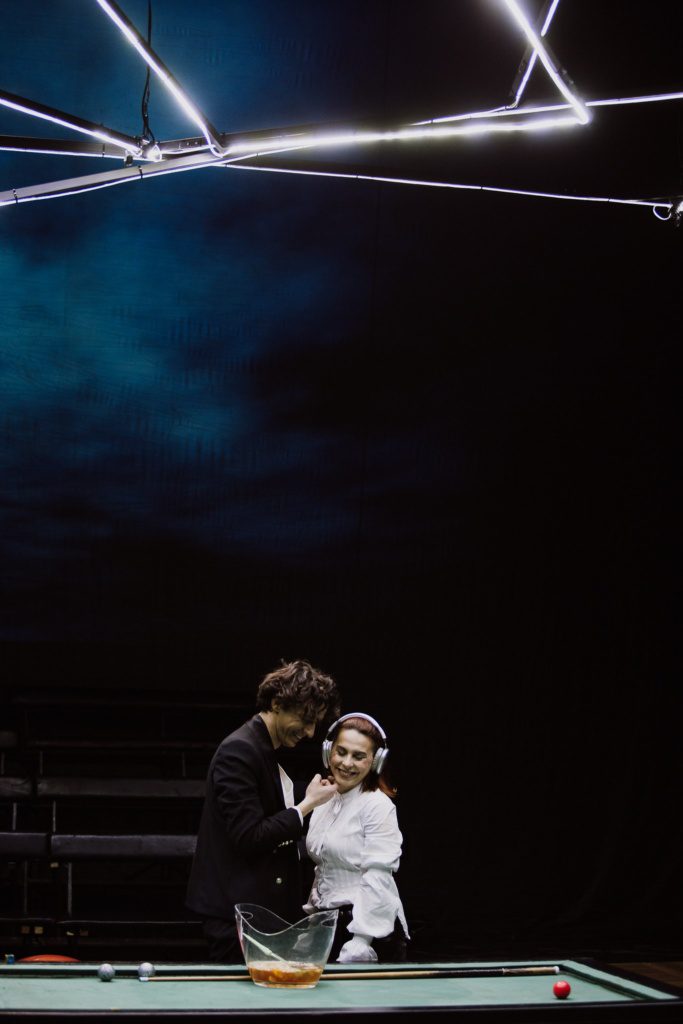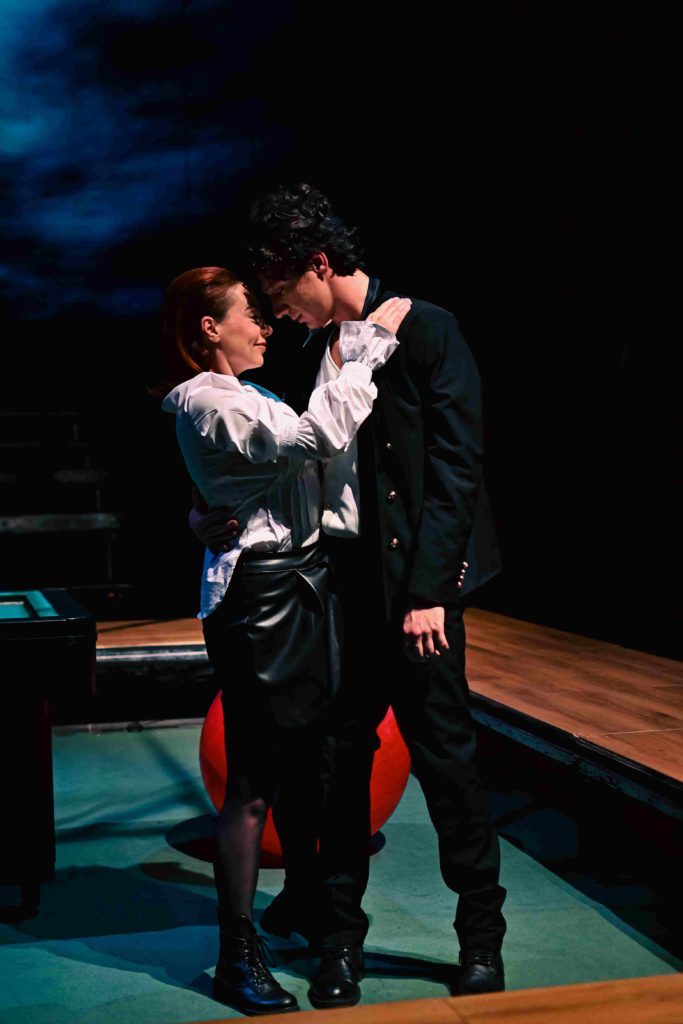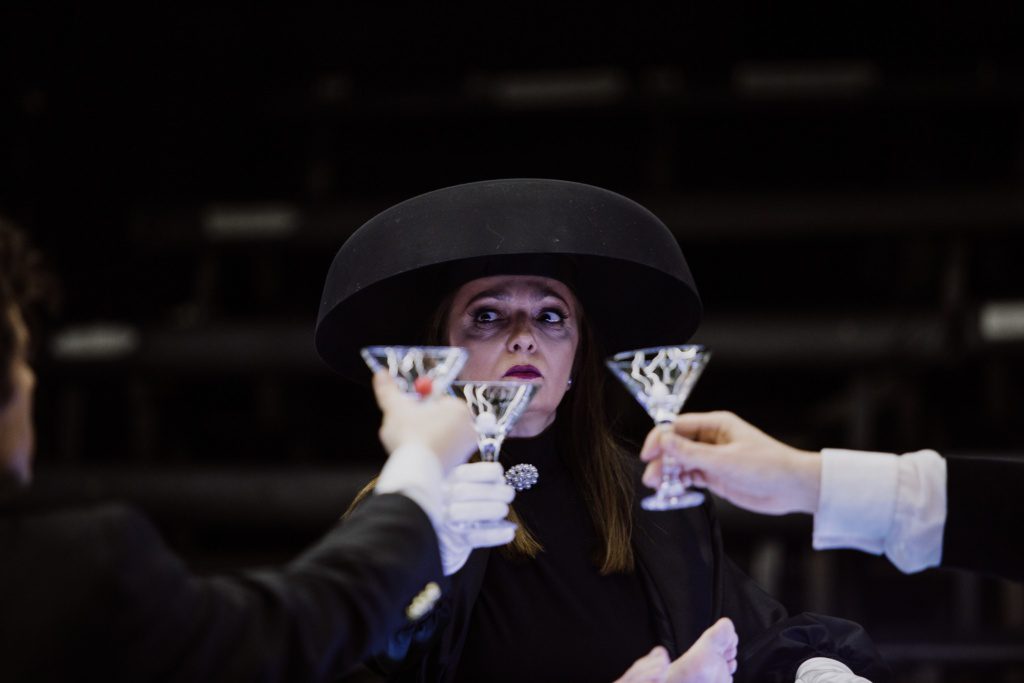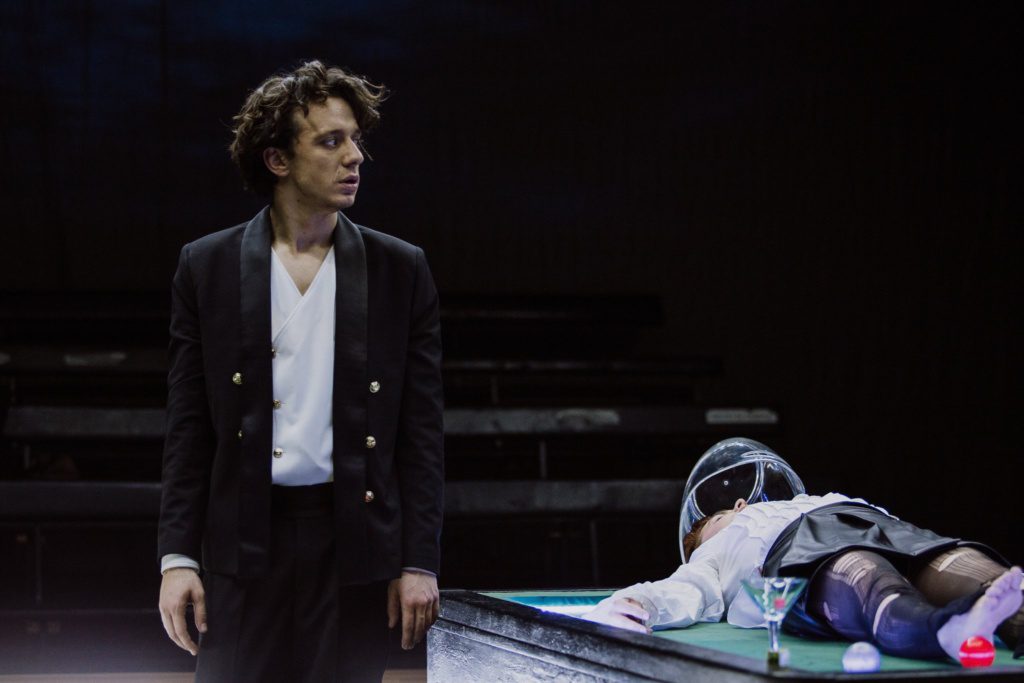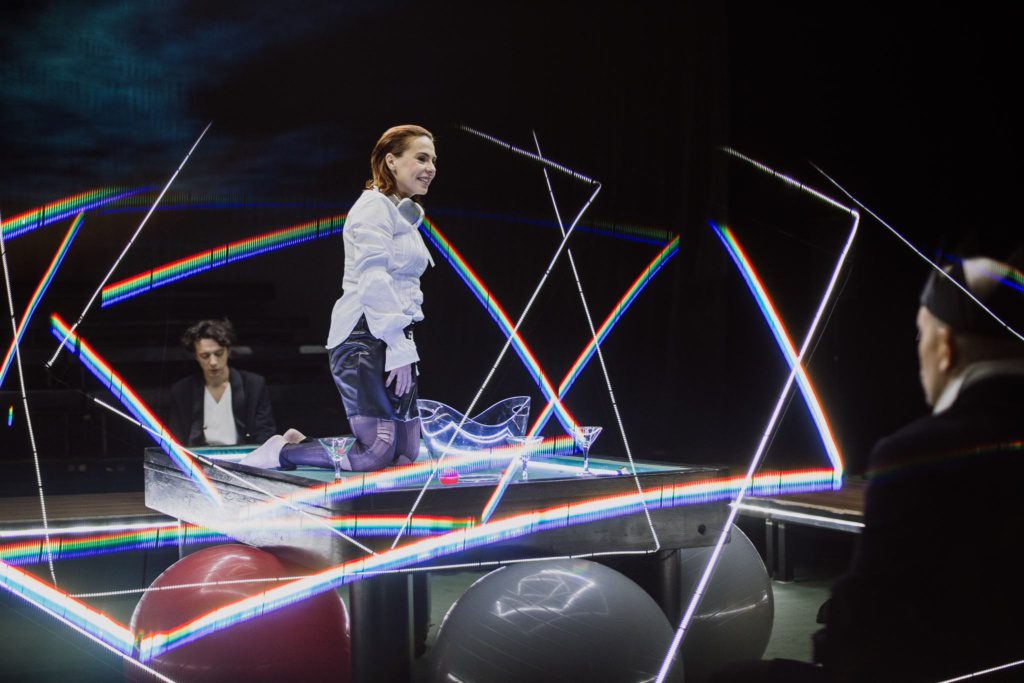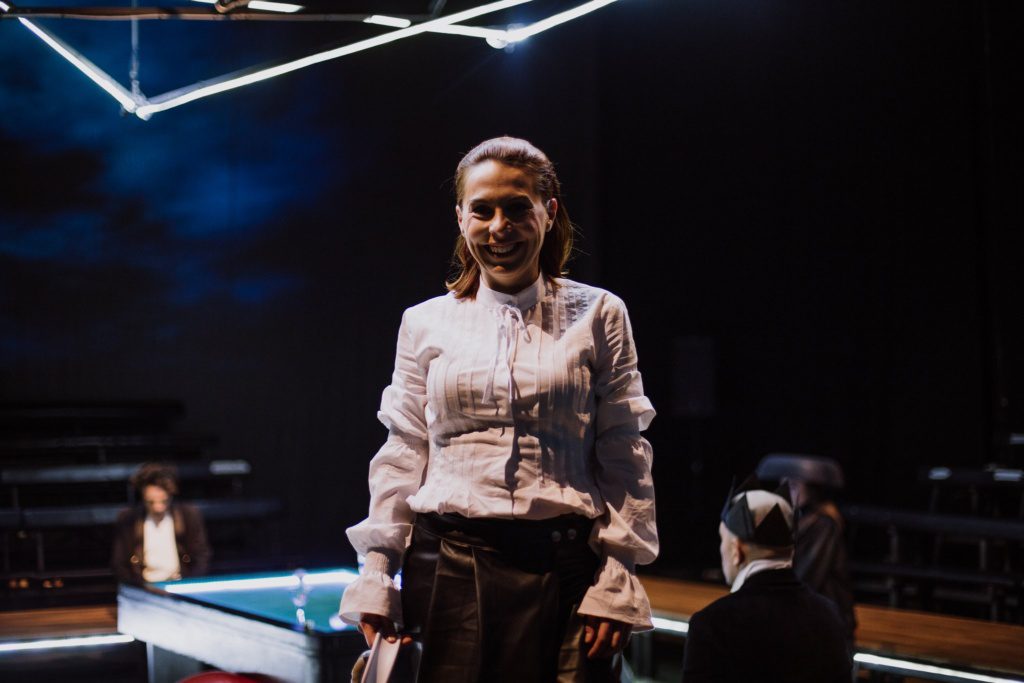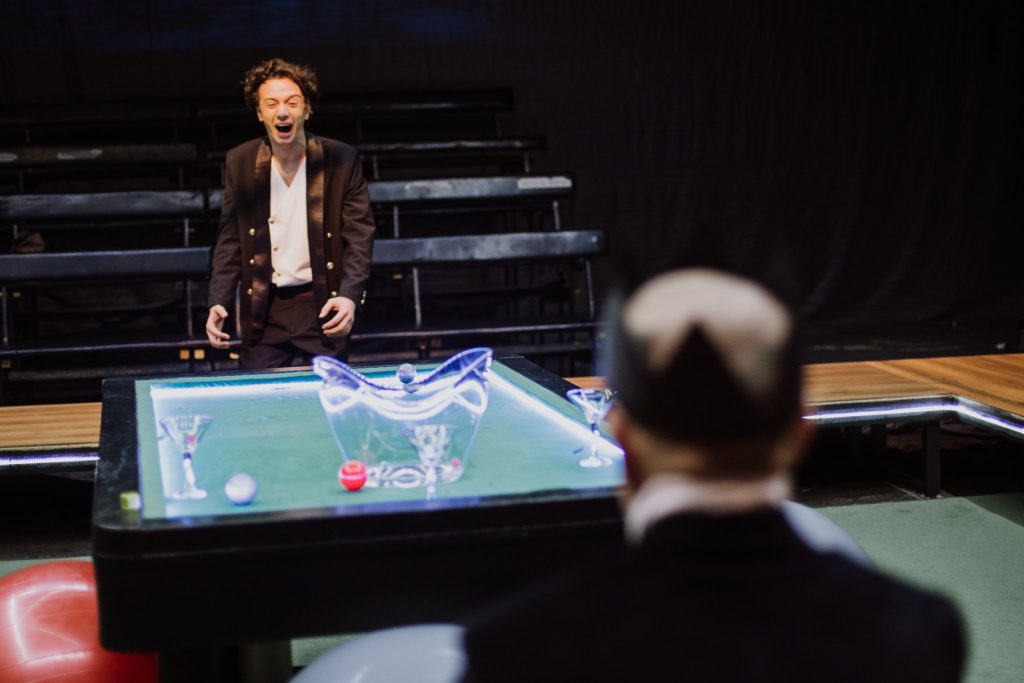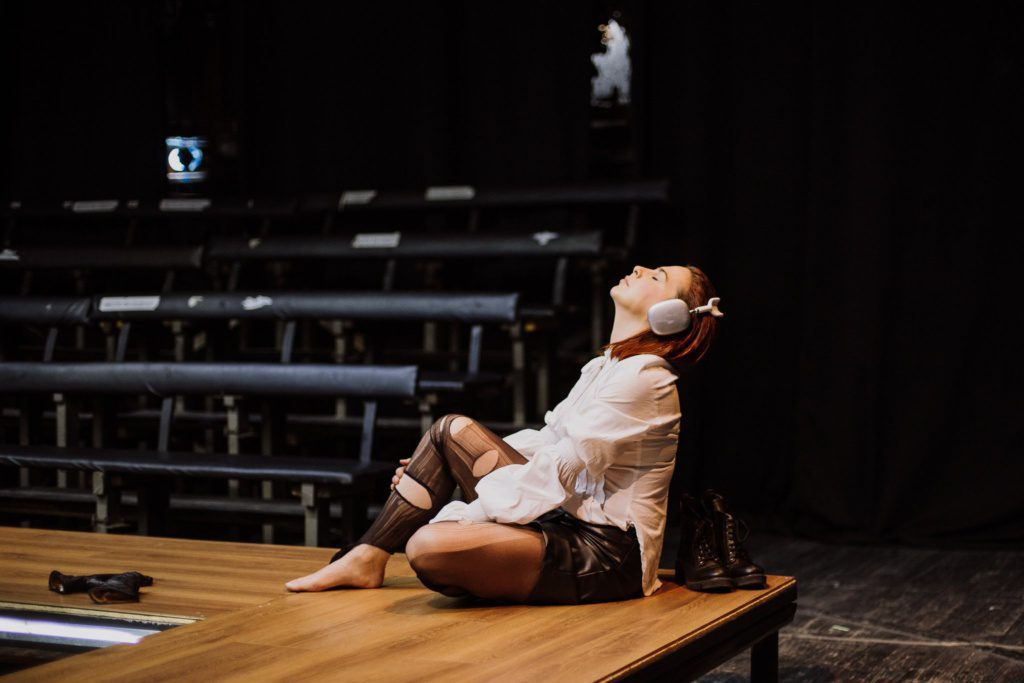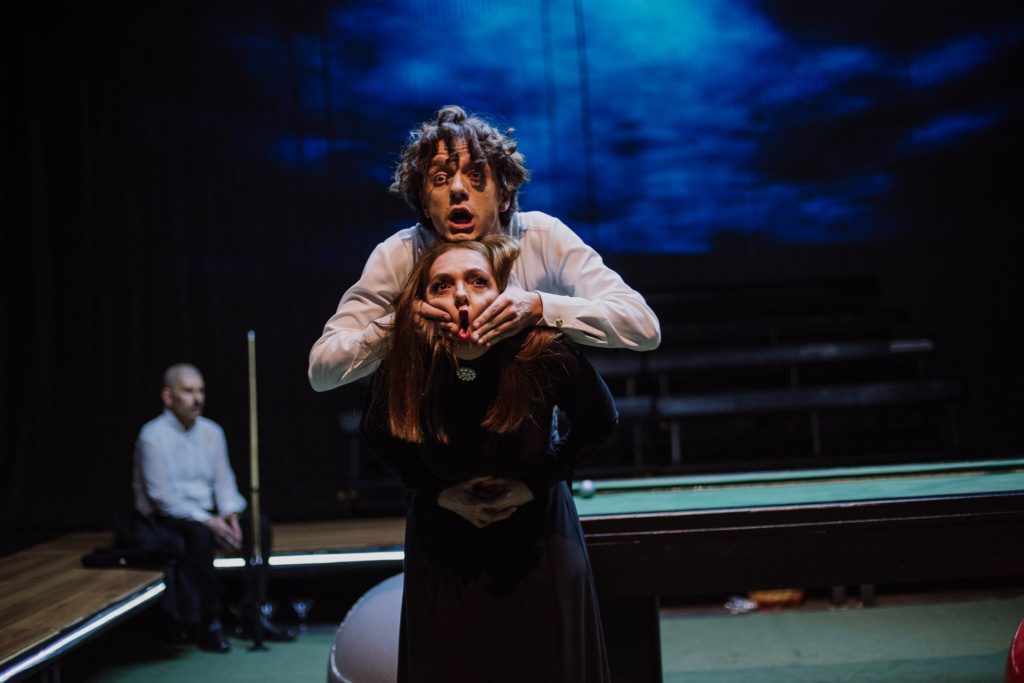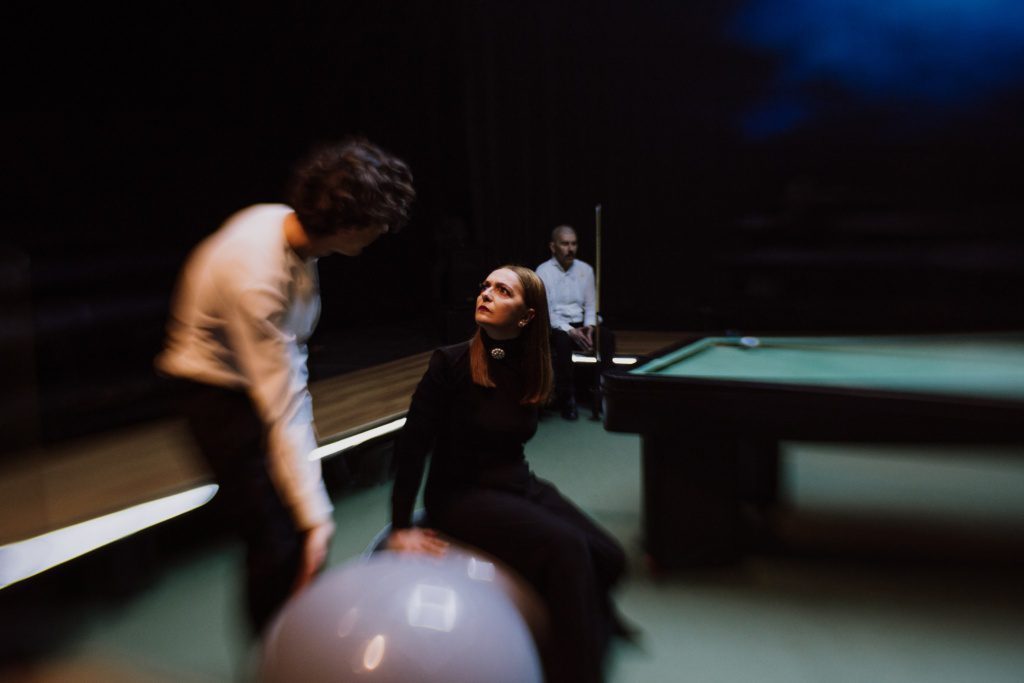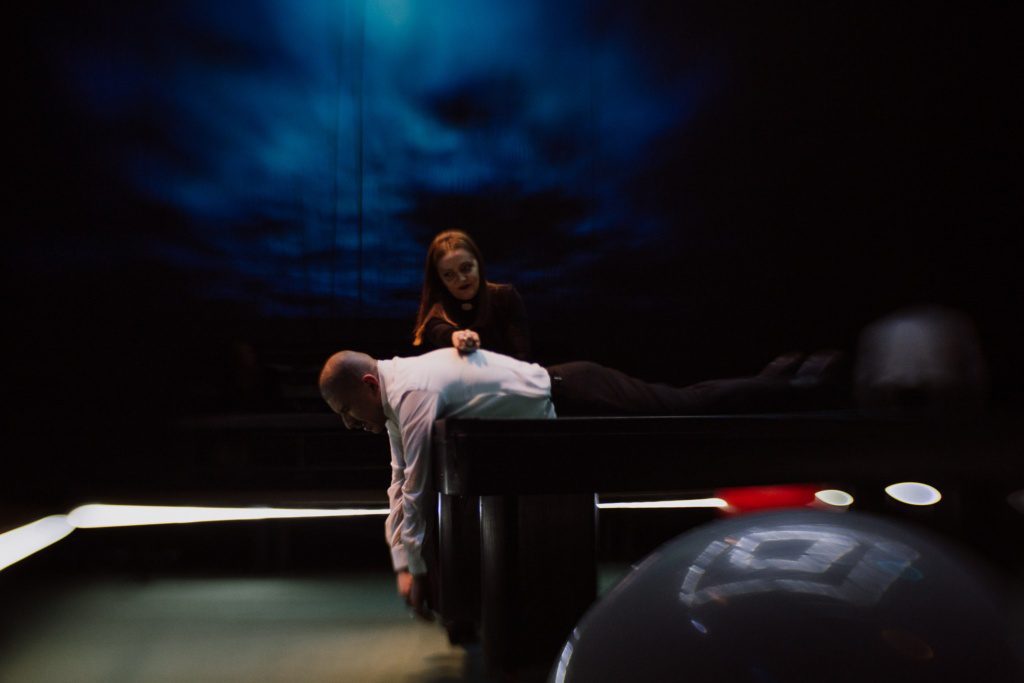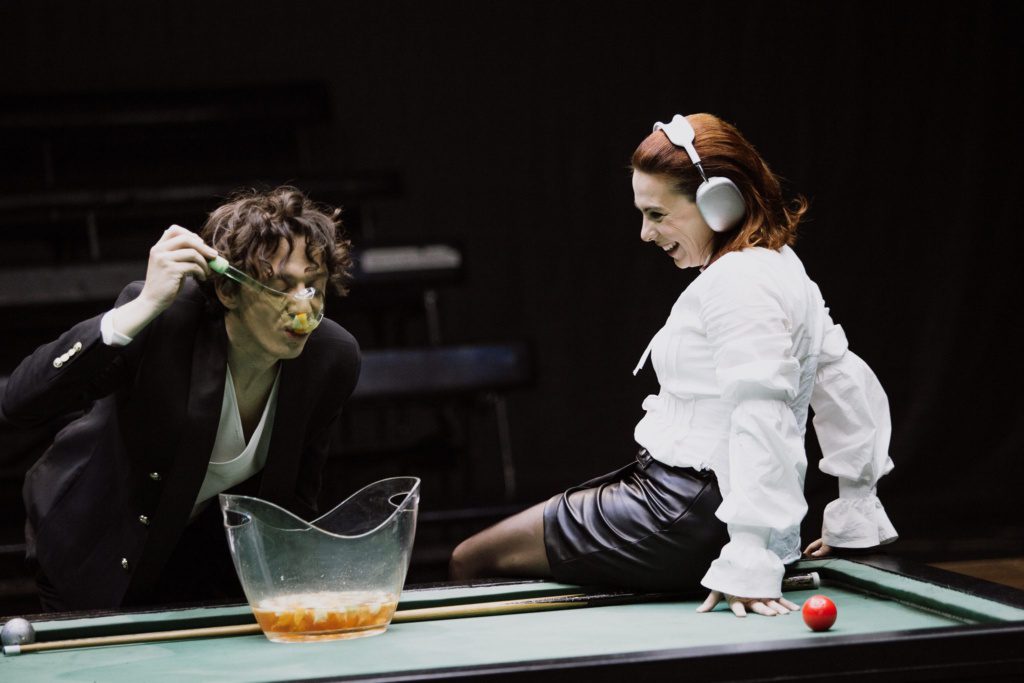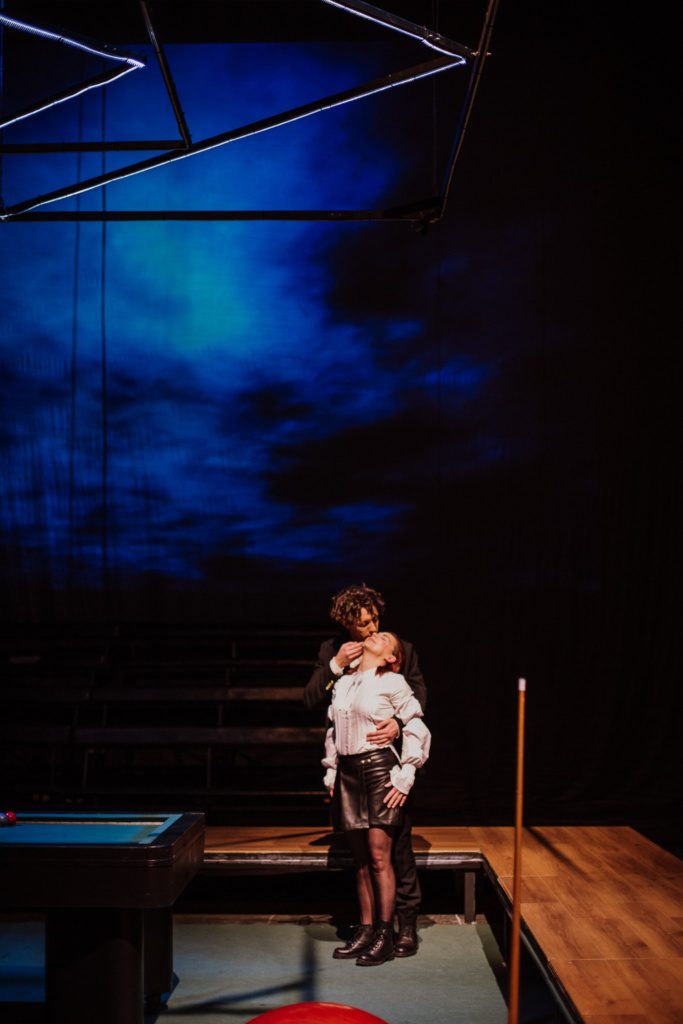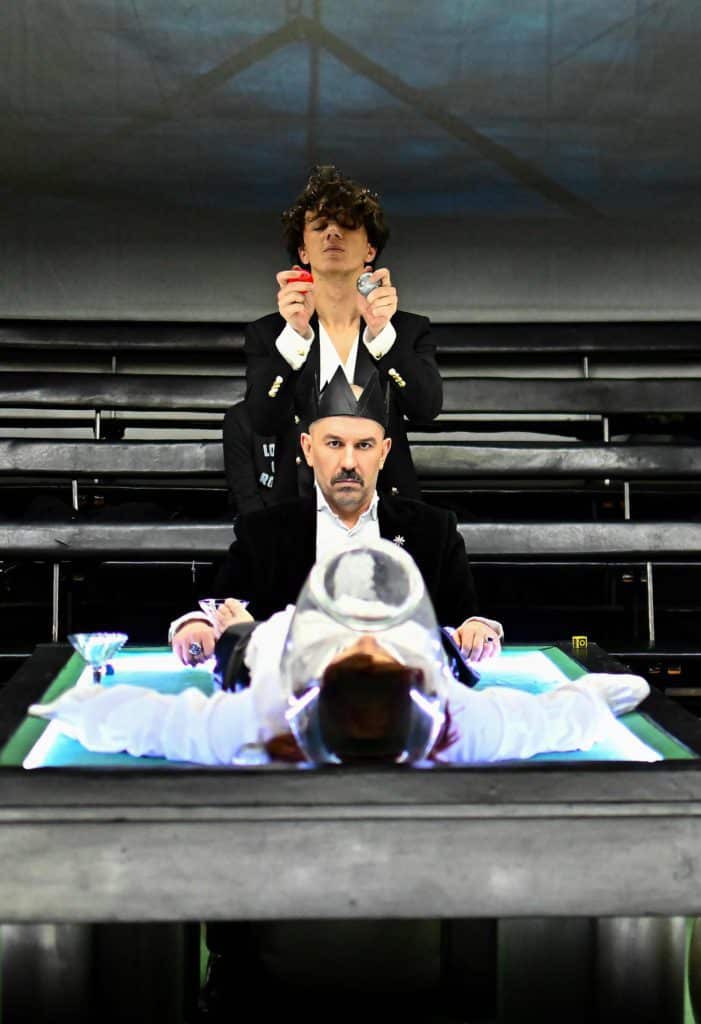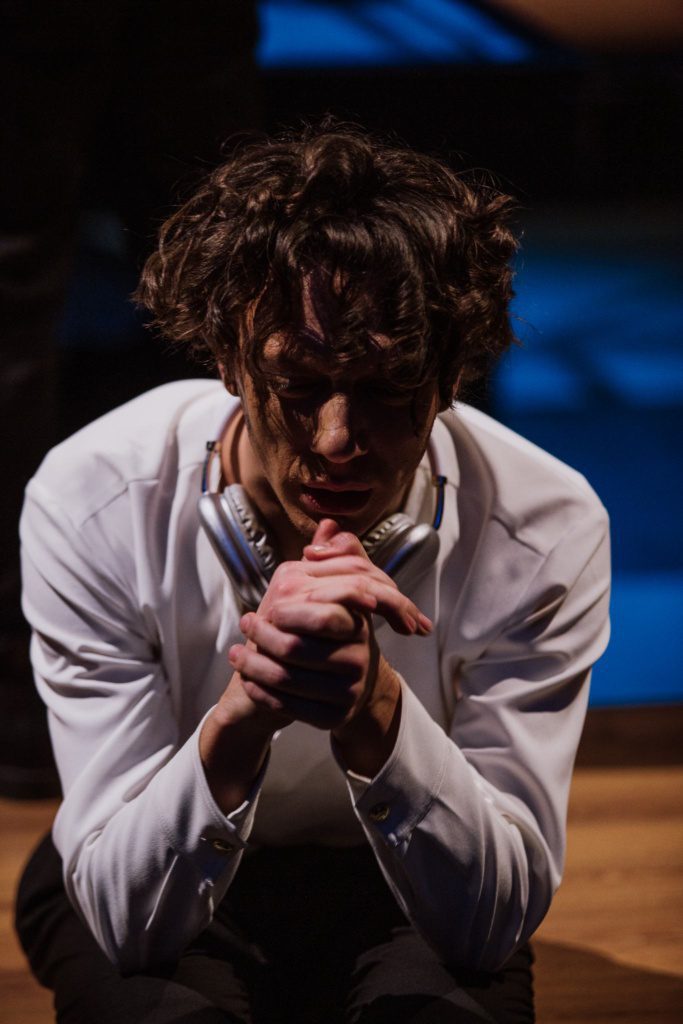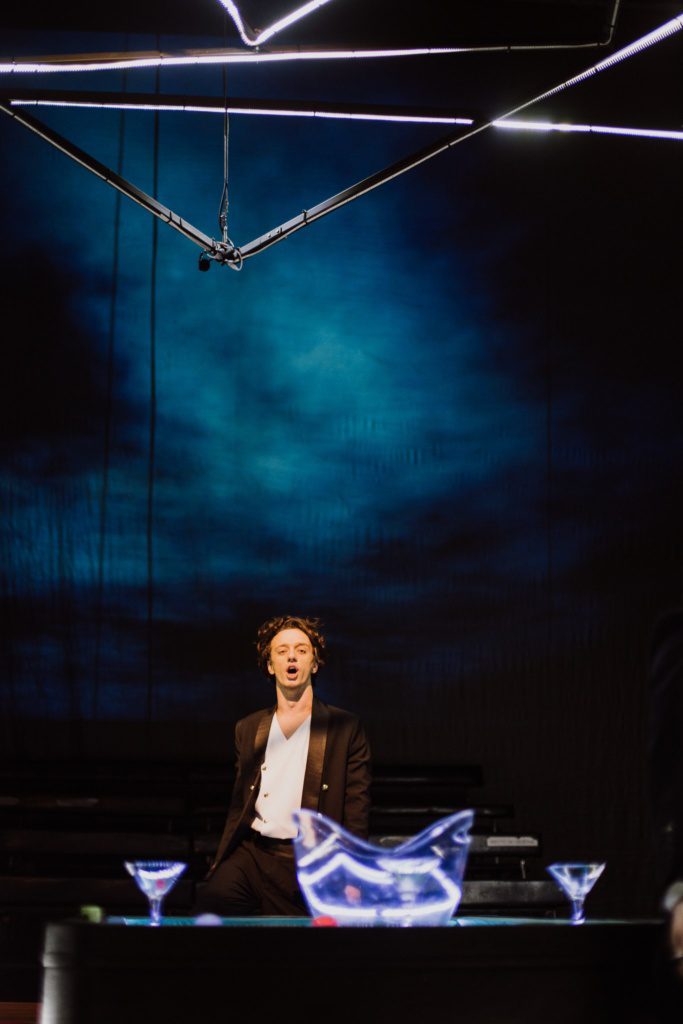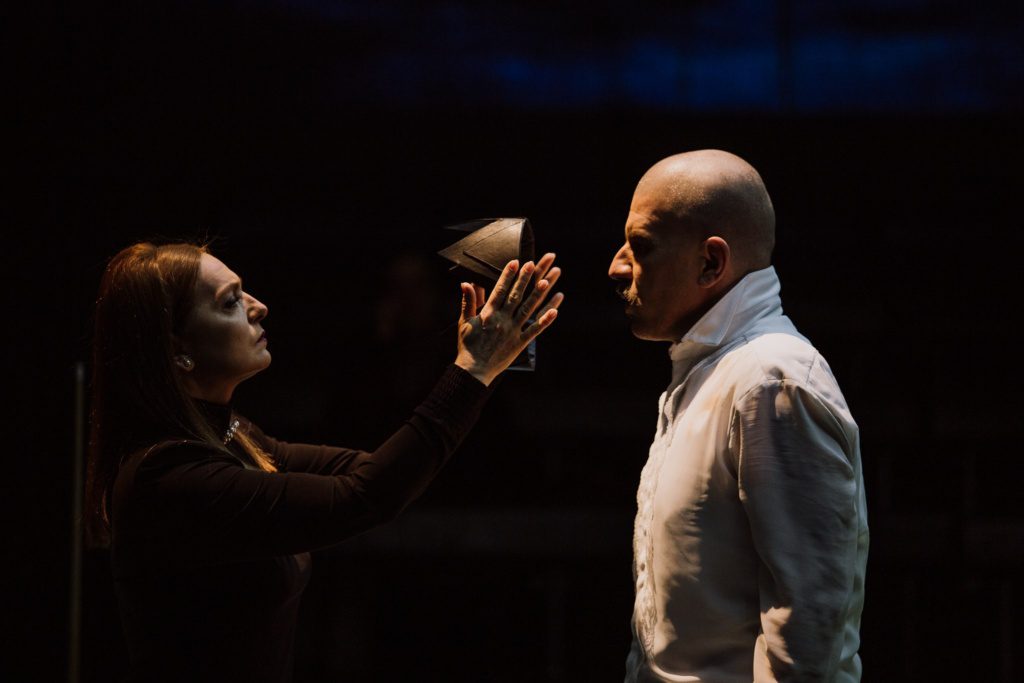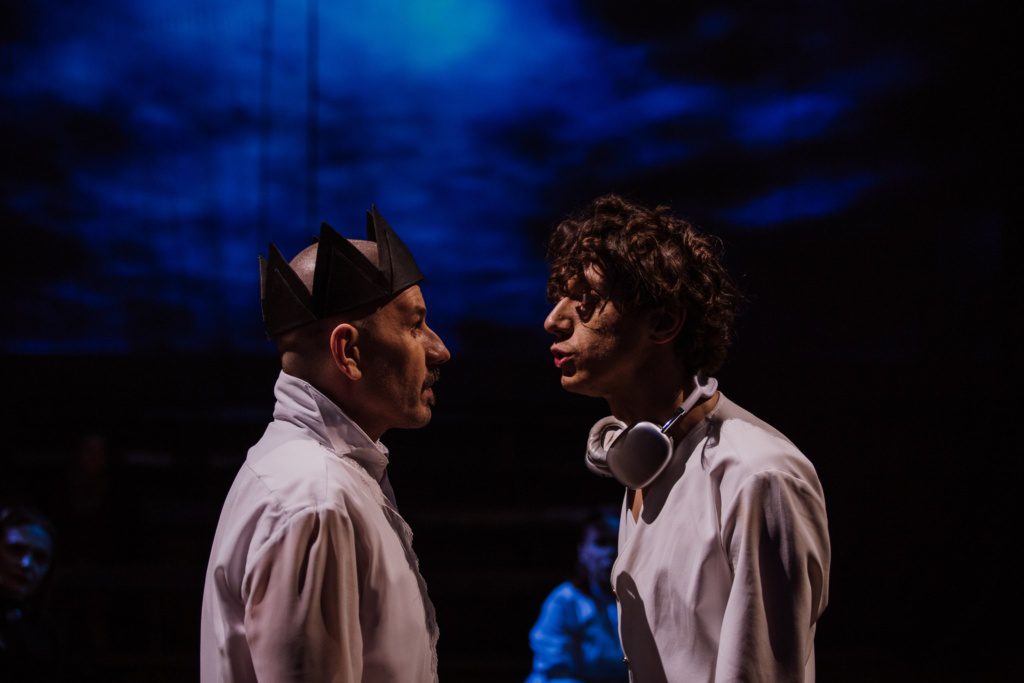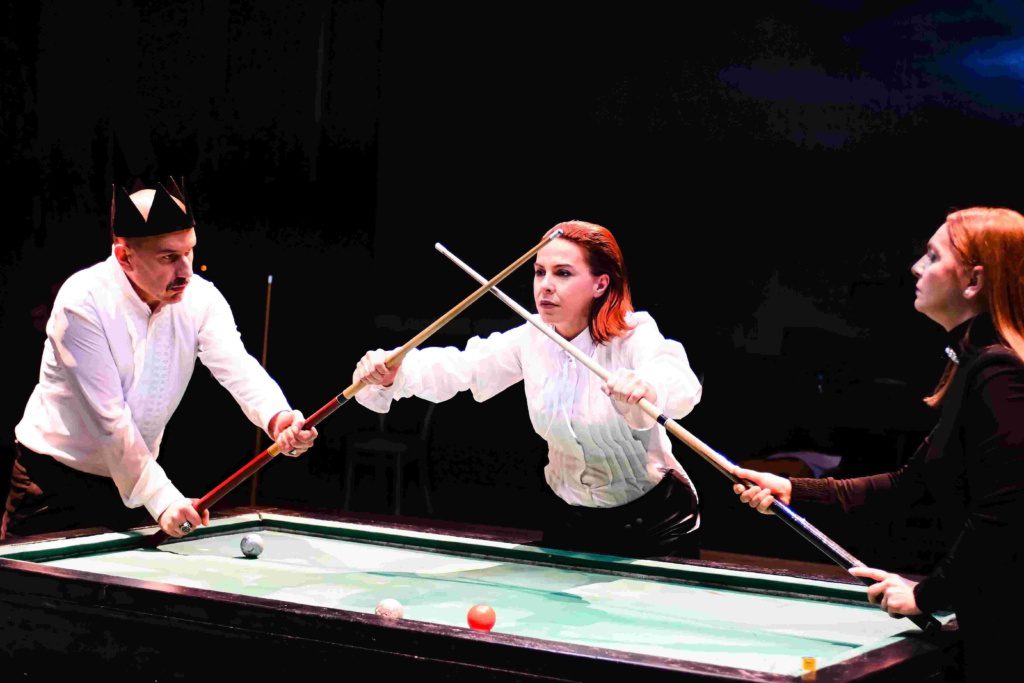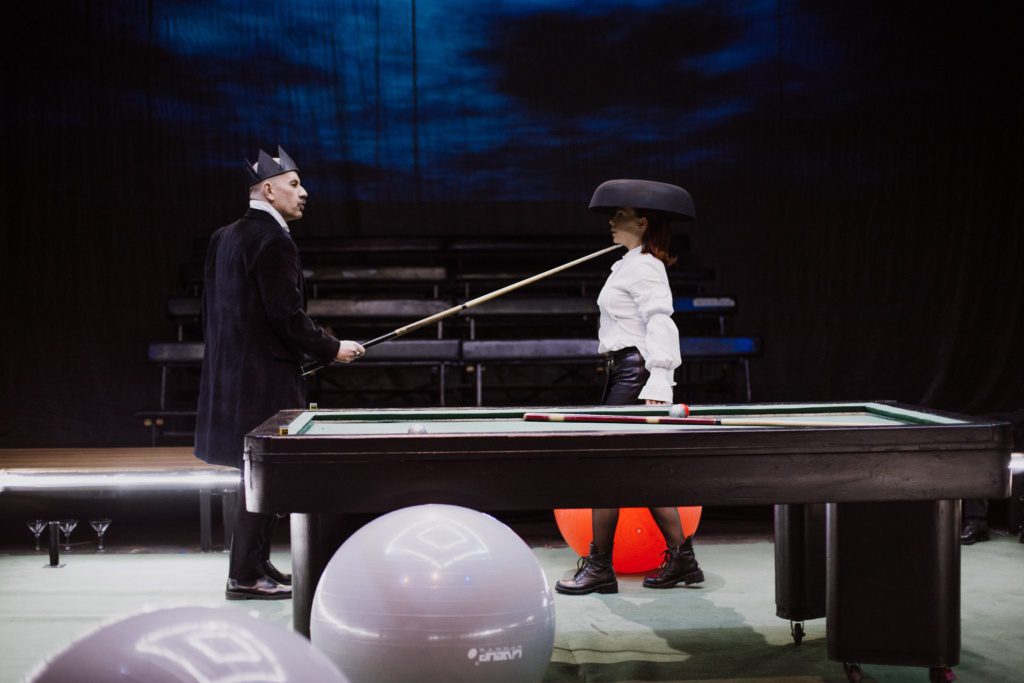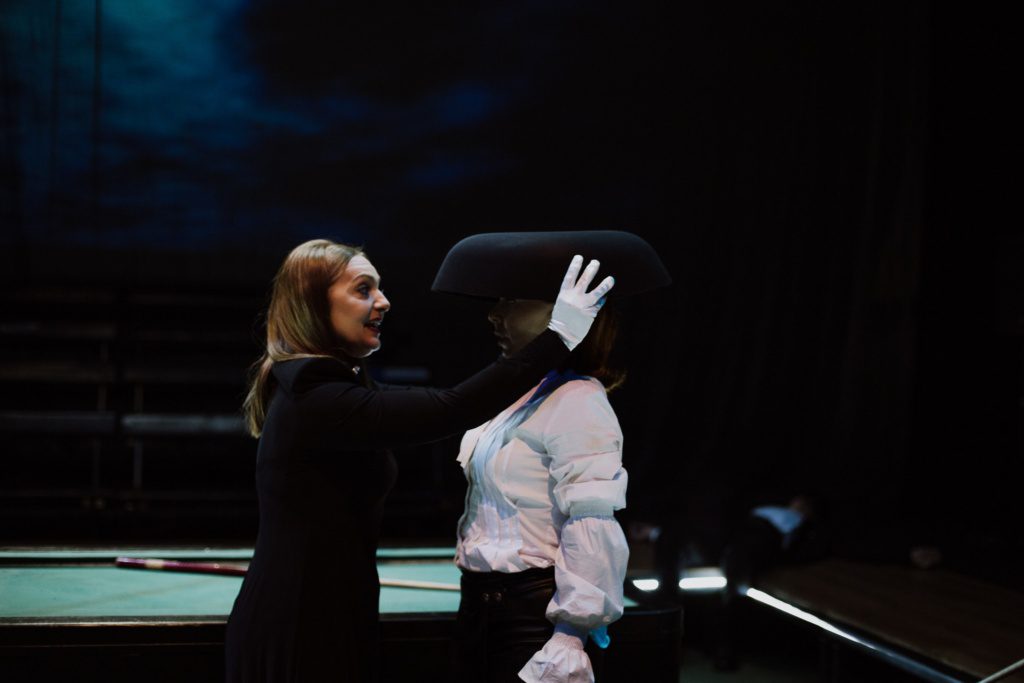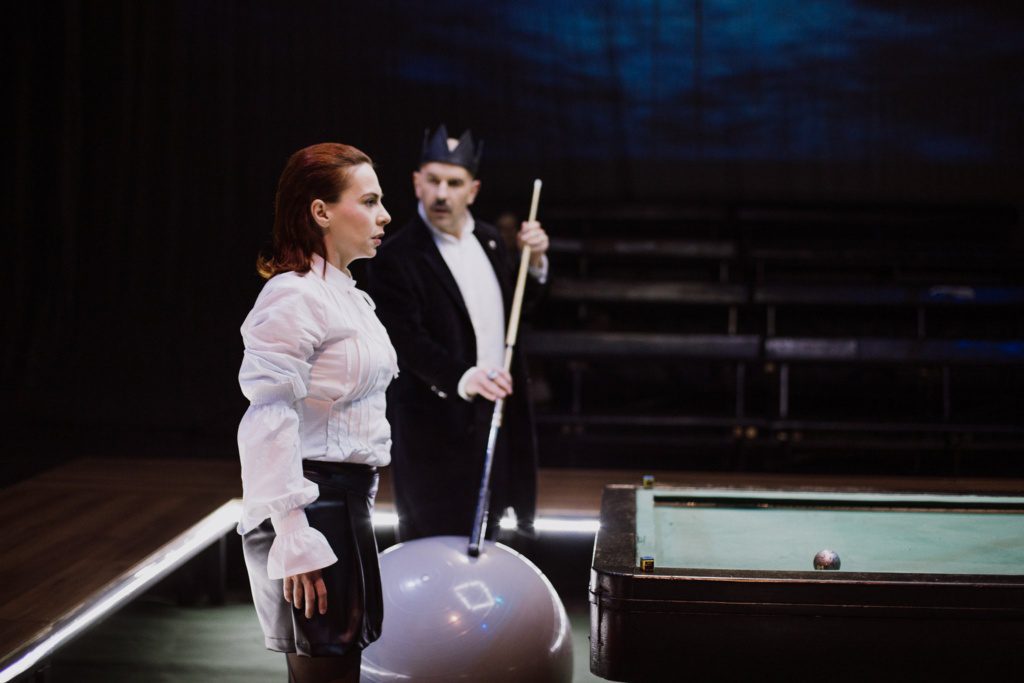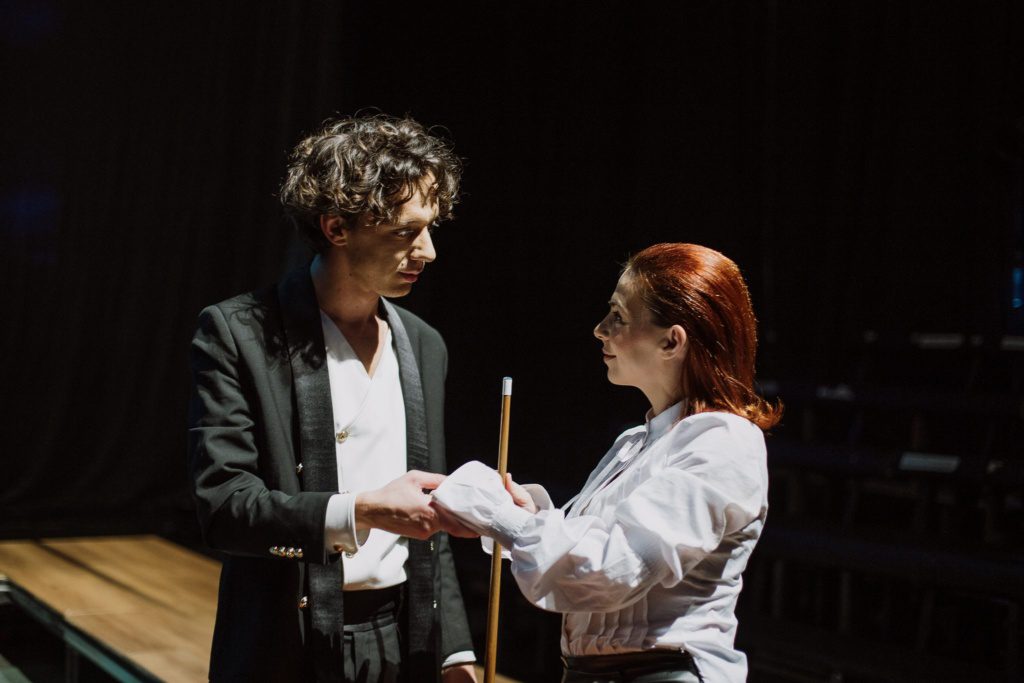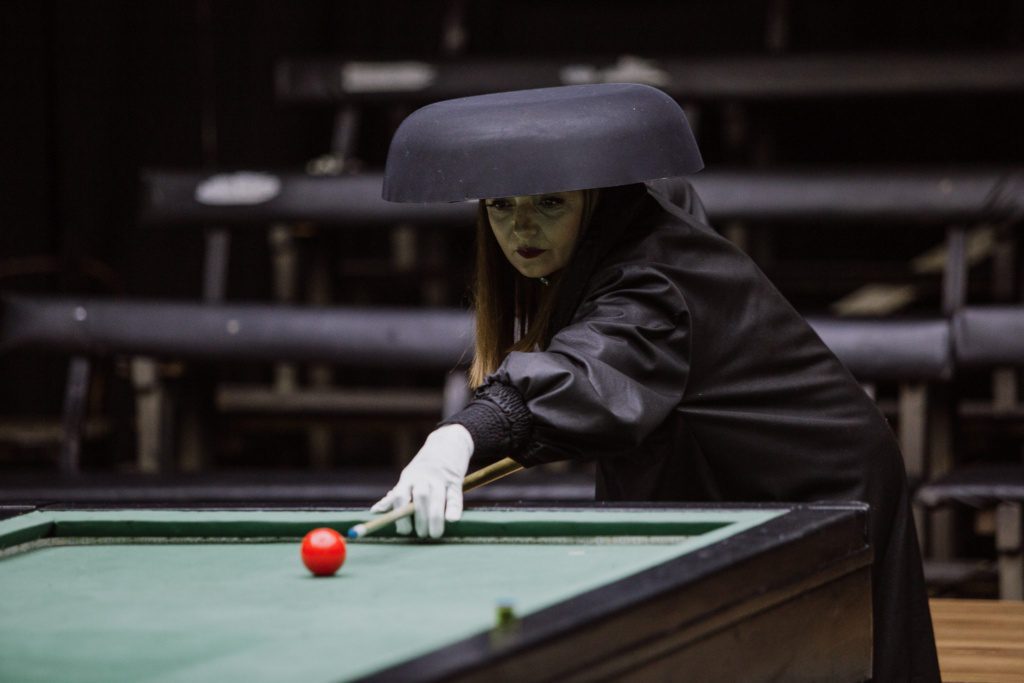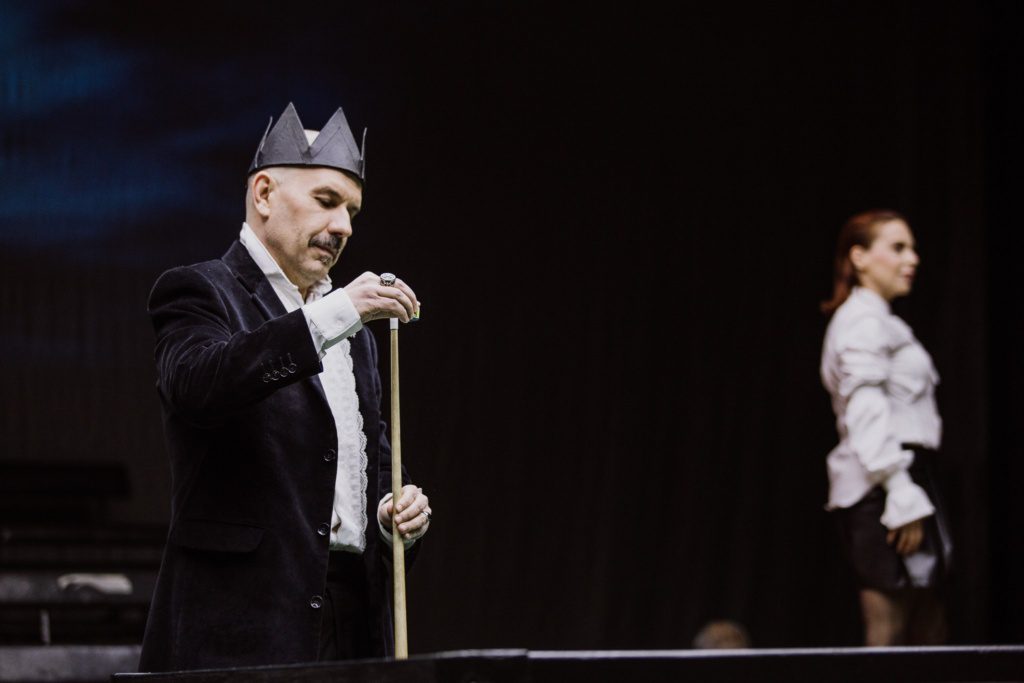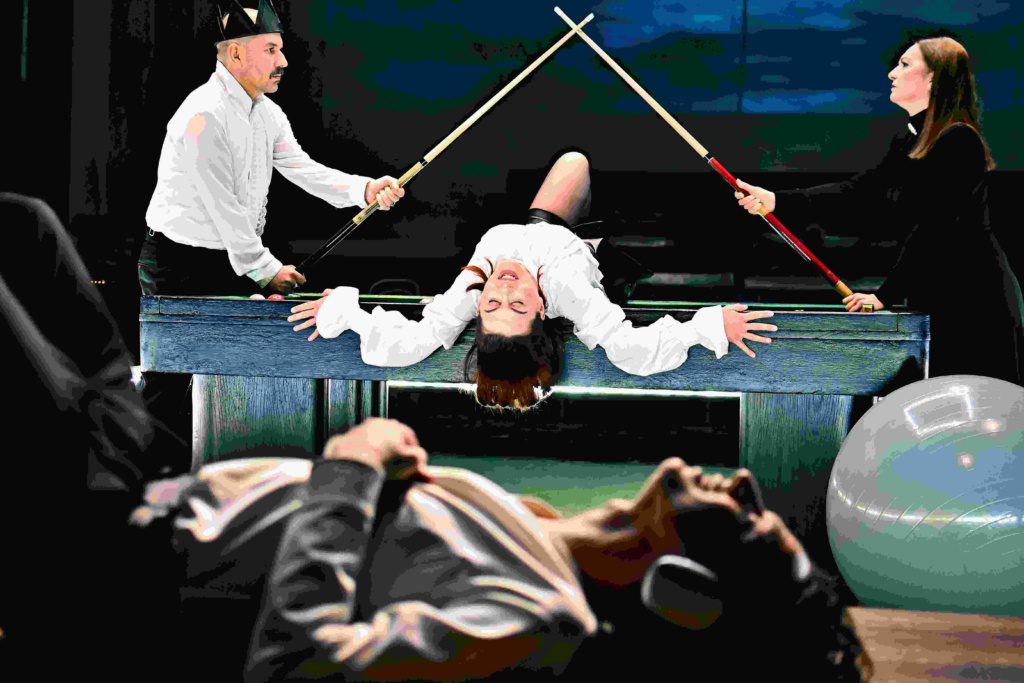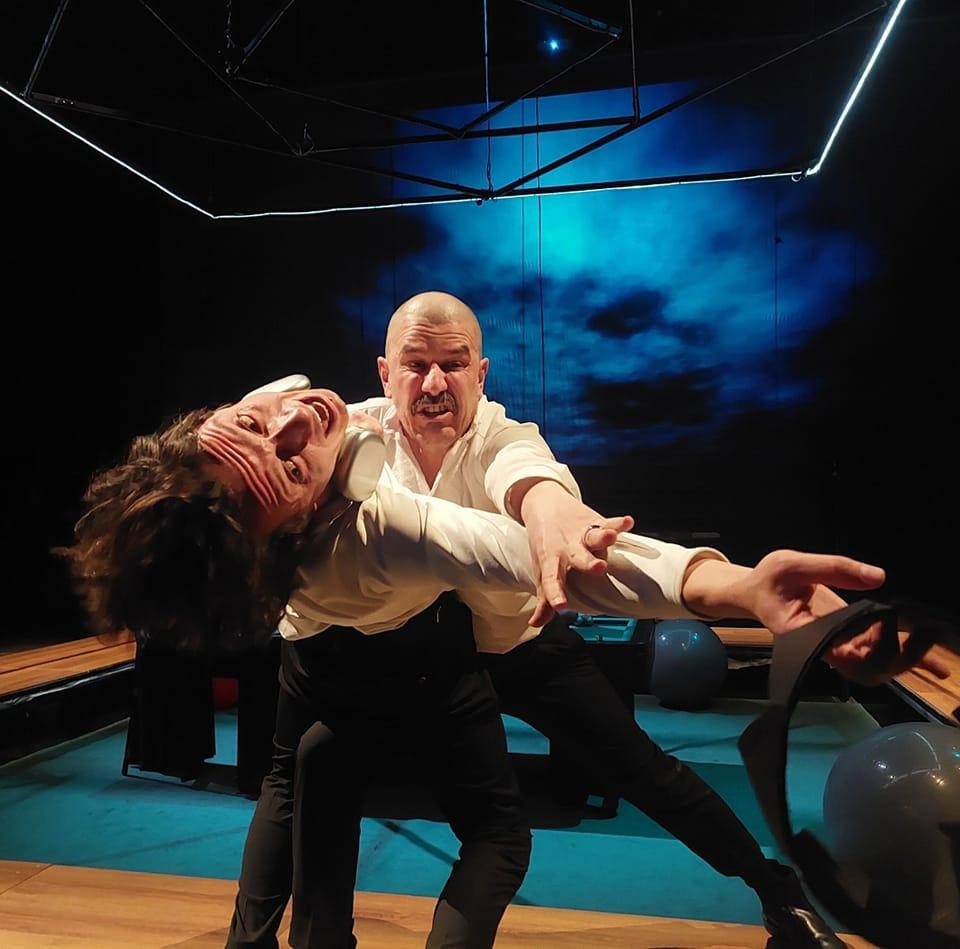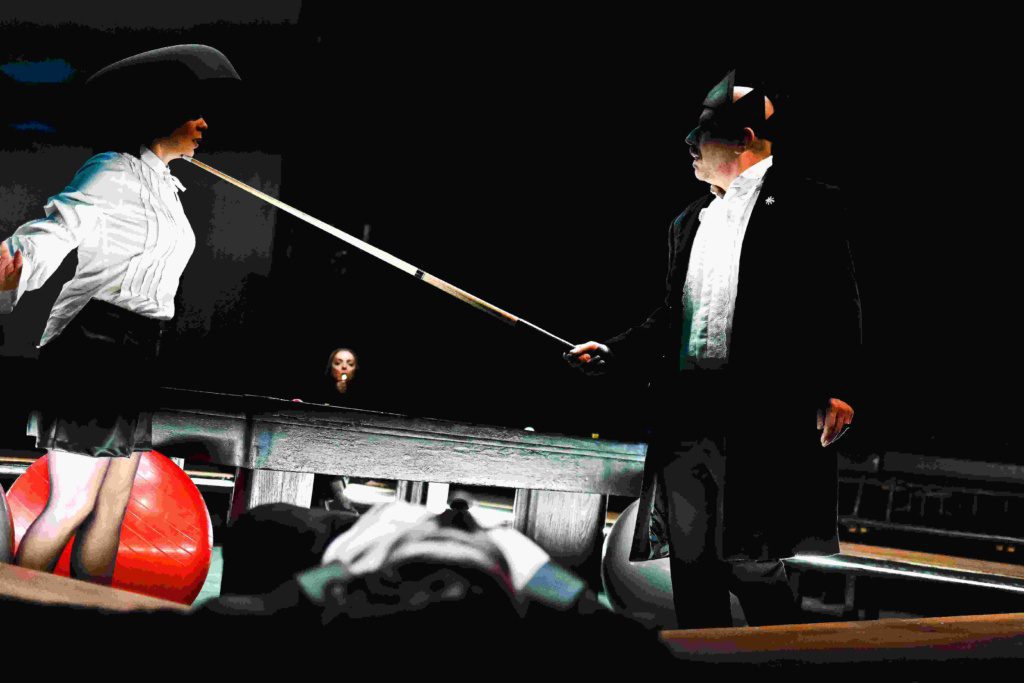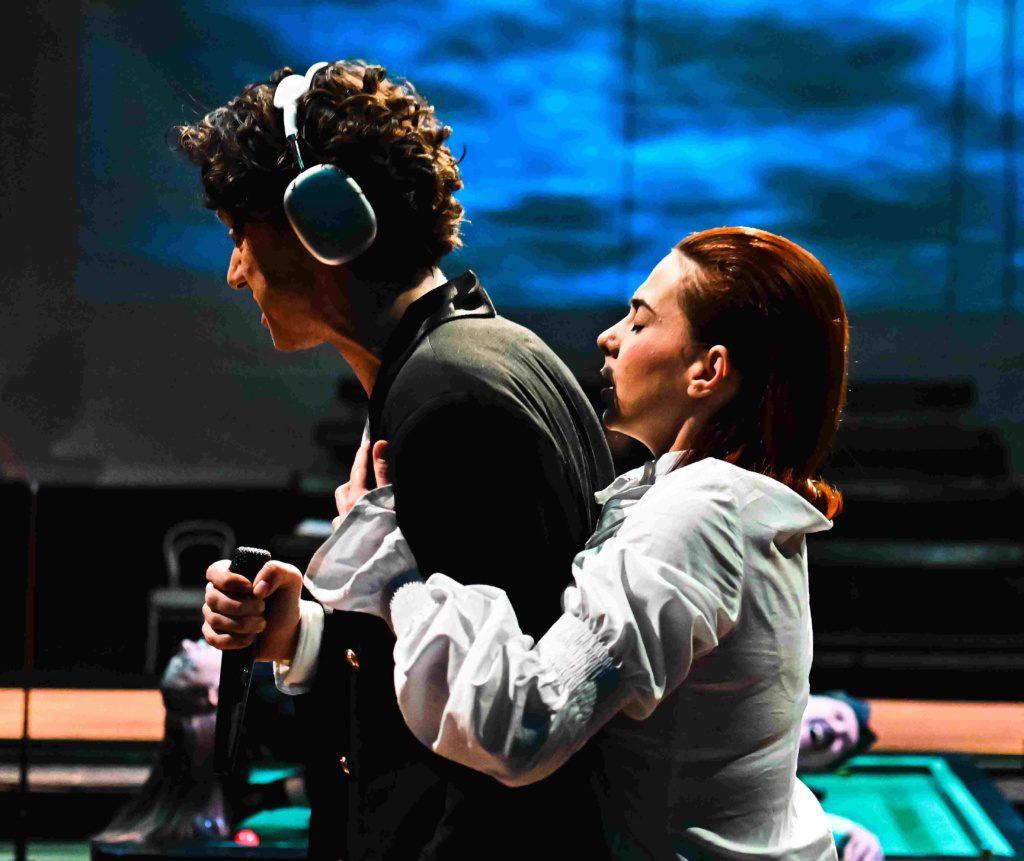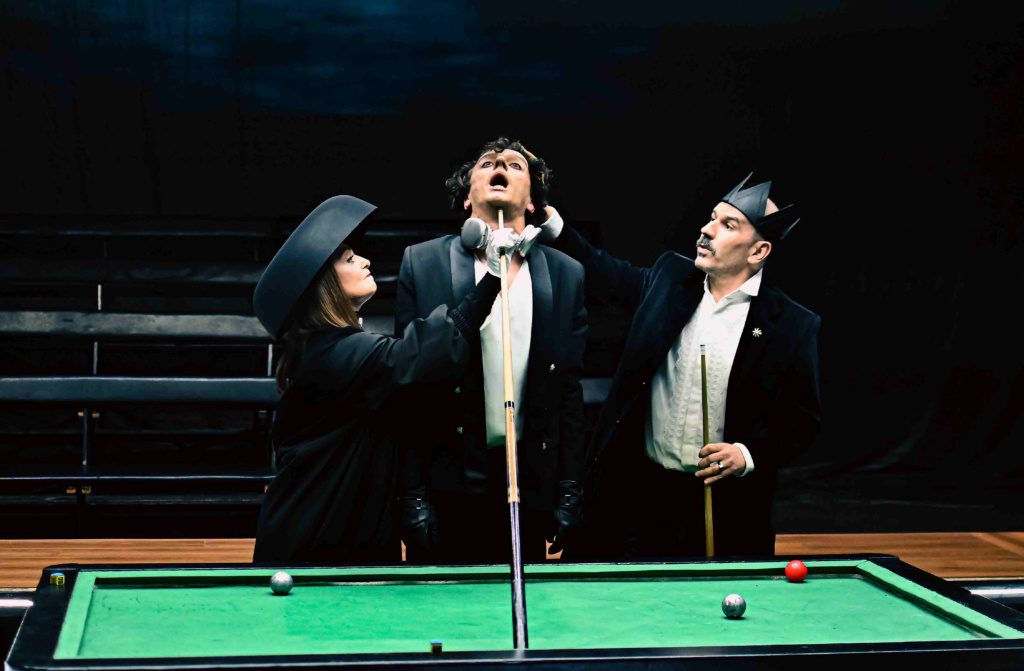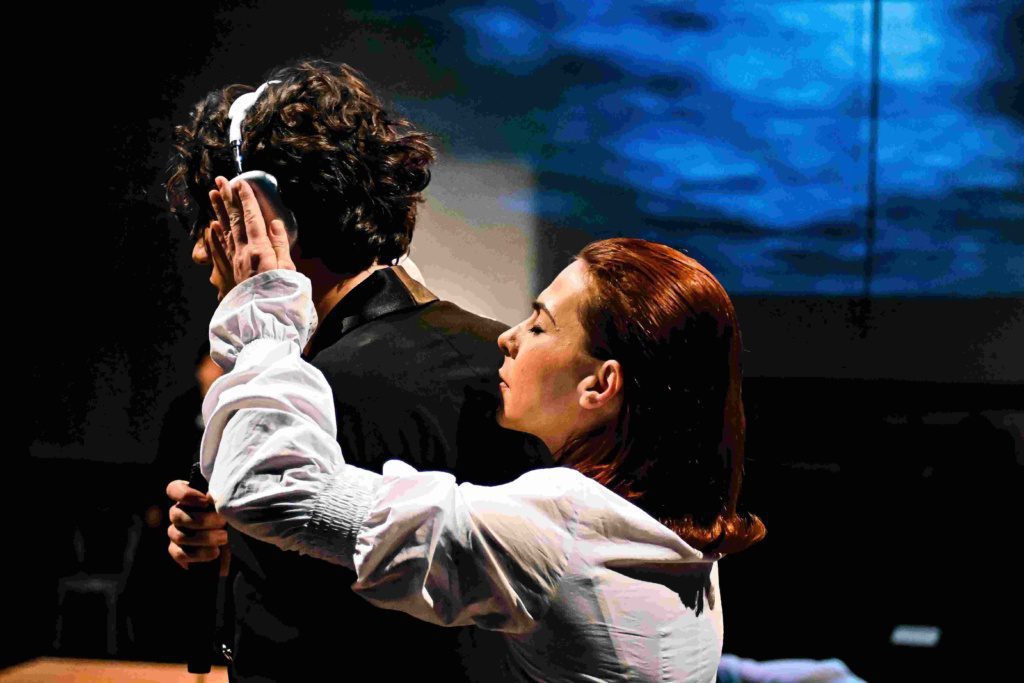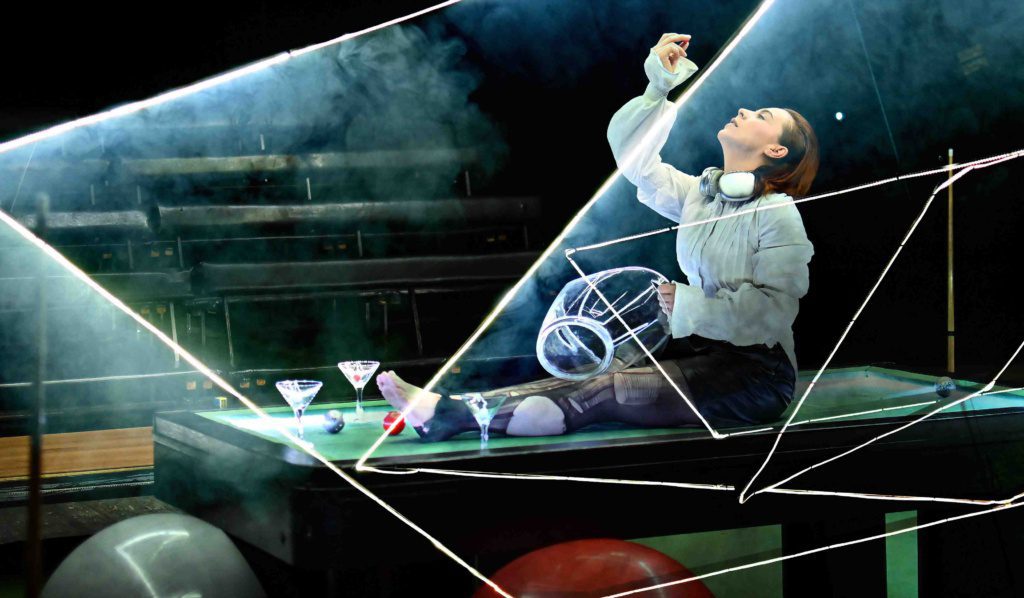HAMLET - The day of the murders
HAMLET – The Day of Murder
(based on the play by Bernard-Marie Coltes)
Director and author of the music: Marjan Necak
Playwright: Olivera Pavlovic
Scenographer: Valentin Svetozarev
Costume designer: Andrej Gjorgievski
Video designer: Saso Ilkovski
Light-master: Nikola Gjorgievski
Tone-master: Aleksandar Dimovski
Authors of the poster: Marjan Nekac and Sasho Ilkovski
Billiards Consultant: Igor Radichoski
Video projections: Vladimir Perelovski, Philip Oshavkov
Caper: Mirjana Hristovska
Inspector: Dimitar Mihajlovski
Premiere: 01.03.2024
Playing:
Hamlet - Nikola Stefanov
Claudius – Ivan Jercic
Gertrude – Valentina Gramosli
Ophelia – Viktorija Stepanovska Jankulovska
The play "The Day of the Murders in History for Hamlet" by Bernard-Marie Coltes, written in 1974 year, according to which we compiled the dramaturgical proposal for the play "HAMLET - The Day of the Murders", is inspired by the timeless work of Shakespeare - "Hamlet", but it is not an adaptation of it either, nor a commentary on Shakespeare's play. It is a dramatization of the famous Hamlet situation: a situation in which every choice leads only to death - moral, spiritual, physical. It is a situation of metaphysical trap – in which human freedom is challenged, that is, the question of man's free will at a moment when he is faced with his limitation to act and his mortality as a being. It is also a real human situation in everyday relationships between people, when a person in relation to another person is faced with a choice to persist as a human being (with all the potential values that being contains) and to die with human dignity, or to die - and morally, and spiritually even before he finally died to the world.
The action of Koltes' "Hamlet" takes place in a historically unspecified place (and quite known as atmosphere) and in limited (on a day) unlimited time (for its variations), maintaining the basic elements and themes of the original work: the terrible murder of the king-father, the usurpation of power by the murderer-lover, revenge as a key moment of the plot of the story, the tragic denouement of the story. A quartet of the four key characters of Shakespeare's play: Hamlet, Claudius, Gertrude, Ophelia, in a strange, a mad race with Death, driving him to the brink of madness every step they take in discovering their love, sexuality, hatred, fear, passion yes (Not)everything is, in one night they resolve their mutual conflict. In this play, everything is shown openly - the very development of the drama and the moving motives. In the last hours of its existence, how could something hold him back, characters with ultimate powers rush in a fast-paced killing game, in which everyone loses their life. It remains to be seen what circumstances the characters themselves will create (and the actors on stage) in their mutual relations, engaged in a game whose end is known.
The text itself by Bernard-Marie Koltes, written in rhythmic prose, is based on language reminiscent of Shakespeare's, but all in vagueness and metaphorical enigmas, which involve in a continuous flow of action, which seems to be in a hurry to be carried out and reach the goal - with an expected end. Our interpretation of the text had the task of that precise, fluid as a musical composition, text, to make it more playful in structure, but scenically more vital – with material that gives dynamism to the action, and collects the content of the text to such a density that it makes the scenes unbearably tense. The extremely provocative situation of an unusual quartet, fatalistically given over to playing with Death, in which we examined the possibilities of the theme of murder as the art of dying, resulted in the creation of a theatrical work with all the richness and magic of a complete theatrical-stage expression - and acting, and spoken, and musically, and visual. If that hour-long universe we've created sparks the viewer's creativity and sense of beauty, each of us will be free to do so, like Hamlet, to tell: "They could put me in a walnut shell.", then again to consider myself the king of infinite space".
Olivera Pavlovic, playwright




